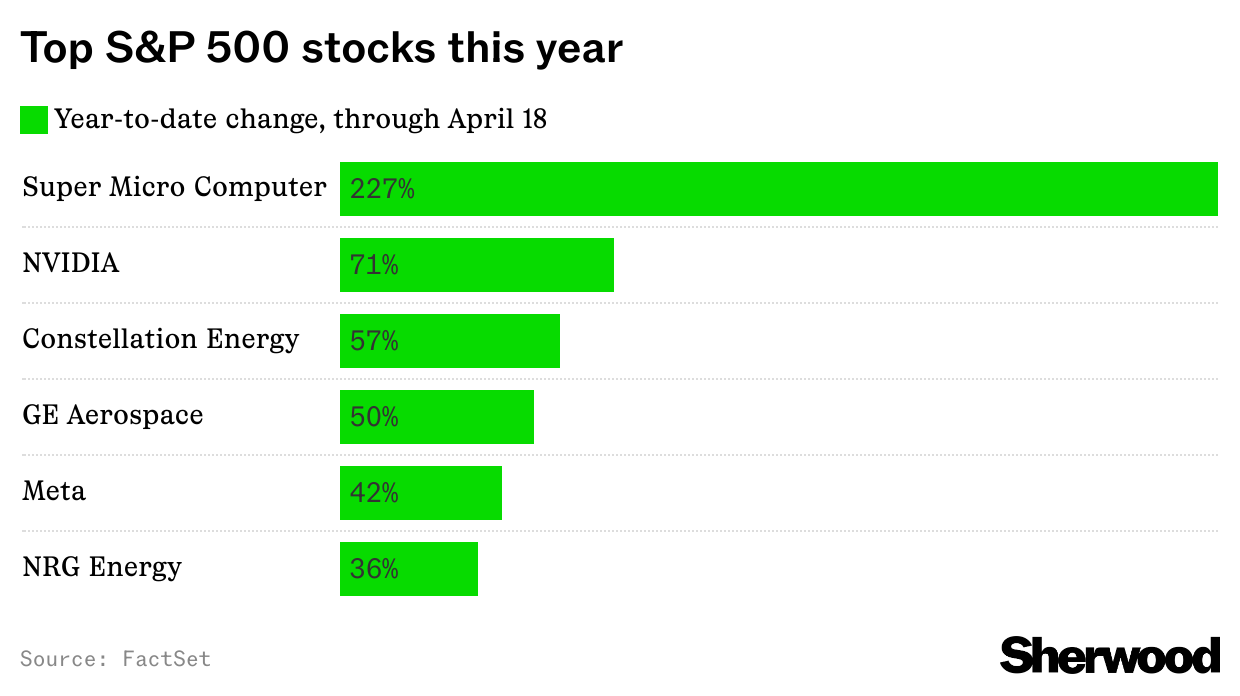Hey Snackers,
Silicon Valley Bank may not be a hit on Wall Street, but its merch is a star on Main Street. SVB-branded corporate swag is flooding sites like eBay (think: beanies and $86 water bottles).
Stocks rebounded after 11 big banks deposited $30B into struggling First Republic Bank, while Credit Suisse separately secured a $54B lifeline from the Swiss National Bank. The techy Nasdaq gained 2.5% as investors expected the Fed to cool (or pause) rate hikes next week.
Tok
Biden threatens to ban TikTok unless it separates from its Chinese parent (and US social stocks pop)
That escalated quickly… The TikTok-ban saga, which just a few months ago seemed to have been forgotten in a dusty corner, has intensified big-time. Earlier this month, President Biden supported a bill that would give him the power to ban (or force a sale of) TikTok in the US. POTUS urged Congress to pass the bill because of national-security concerns. This week:
Biden time: TikTok said that the Biden admin threatened to ban it in the US unless the popular app separates itself from its Chinese parent, ByteDance.
For You rage: Biden demanded that ByteDance agree to spin off TikTok. While ByteDance owns other apps — including Douyin, the Chinese (censored) version of TikTok — losing TikTok and its 100M American users would be a massive blow.
Endless scroll: Americans spend, on average, nearly an hour a day on TikTok — more than on either Facebook or Instagram.
Interesting timing… It may not be a coincidence that Biden threatened a Tik ban within a day of the Chinese government announcing an overhaul to strengthen its control over its tech sector. China’s Communist Party set up a new bureau to mine data for economic growth, and established a central technology commission to boost the party’s oversight of the sector. Chinese President Xi Jinping also encouraged the country’s private companies to “fight” alongside the Communist Party. The US is worried TikTok could share American data with China.
Bad news for one is great news for some… Meta, Snap, and Google stock surged after reports of an increasingly likely TikTok ban. The disappearance of TikTok in the US would be a dream come true for Instagram, Snap, and YouTube. Despite their efforts to replicate TikTok’s success (think: Instagram Reels, Snap Spotlight, YouTube Shorts), they’re still losing engagement (and advertiser $$) to Gen Z mega favorite TikTok.
Look
Google stops selling its smart glasses as face wearables struggle to gain traction
A glass from the past… returns to the dustbin of history. Google said it would stop selling its Glass Enterprise smart glasses. The $1K camera-equipped lab-goggle-looking wearables were marketed for industrial use (picture: warehouse workers scanning crates with their faces) and were an evolution of 2013's much-hyped Google Glass. Google stopped selling the first (consumer-focused) version of Glass two years after its debut after it elicited immediate pushback — both on privacy and style grounds.
Google pass: Glass was called antisocial and "too dorky to succeed" by the tech-forward Wired magazine.
Ogle glass: Concerns that Glass would be used surreptitiously to record patrons led several bars to ban the devices.
Face computers lose face… Google isn't the only biz to struggle with making smart glasses shine. In 2016 Snap released $130 video-recording Spectacles, but apparently overestimated demand to the tune of $40M in losses. In 2021, Meta launched its $300 Ray-Ban Stories for video recording and sharing, but despite the fashion-forward frame, they seem to have failed to catch on. Apple, one biz that could allay style and privacy objections, keeps delaying its rumored Apple Glasses. Meanwhile, VR headset sales fell last year, and Meta slashed the price of its Quest Pro just months after launch.
The higher the bar, the higher the value prop… and smart glasses have a high barrier to adoption without a high value prop. Getting a pricey tech product on a customer's face — vs. tucked inside a pocket — is a big ask. Unless wearable makers can demonstrate a compelling practical benefit, smart glasses might forever stay in their cases.
UNMIX
The Crypto Catch-Up…
📸 Flashy… US and European law enforcement shuttered ChipMixer, a “crypto mixer” that lets people commingle funds to boost anonymity. Authorities said it was used by criminals, including North Korean hackers, to launder $3B+ in crypto.
🤖 Techy… The Fed said its instant-payments service, FedNow, will go live in July. The system could overhaul how Americans move money each day. Think: not having to wait for checks to clear could cut demand for payday loans.
🪙 Coins… Fidelity quietly opened its crypto service up to millions of retail customers, with bitcoin and ether available to trade. The timing suggests Fidelity isn’t dissuaded by crypto winter and increased regulatory scrutiny.
What else we’re Snackin’
Aid: Major banks including JPMorgan, Goldman Sachs, and Citi pledged to deposit $30B to help rescue First Republic Bank. Shares of the midsize bank closed up 10% on the news, after falling 30% on Tuesday.
Shored: Credit Suisse shares surged after the Swiss central bank lent $54B to bolster the country’s second-largest lender. CS stock had hit a record low this week on financial-reporting and liquidity concerns.
Bai-Bai: Shares of Baidu (the Google of China) hit an eight-week low after it rolled out its much-hyped ChatGPT rival, “Ernie.” Investors were disappointed by prerecorded demo videos instead of a public launch.
Calm: Treasury Secretary Janet Yellen said the US banking system “remains sound” after a volatile week for global bank stocks. She said regulatory changes could be considered to avoid a repeat.
Grounded: Virgin Orbit is pausing all work (and reportedly furloughing staff) as the struggling space startup hunts for fresh $$. Virgin’s been burning $50M/quarter and its first UK satellite launch mission flopped in January.
Friday
- Saint Patrick’s Day
Authors of this Snacks own bitcoin and ethereum and shares: of Apple, Google, and Snap
ID: 2798804
.png)

